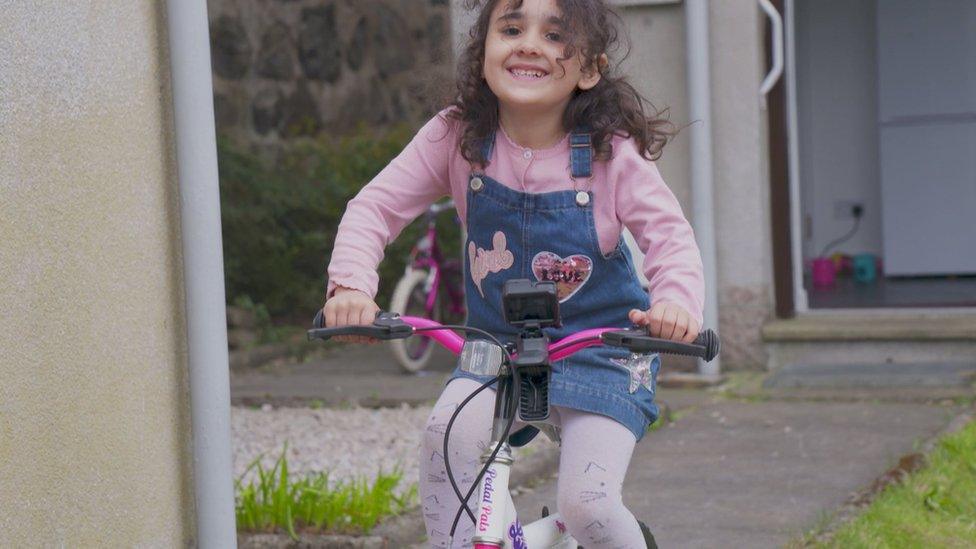Refugees fleeing Syria to UK: 'We're not trouble'
- Published
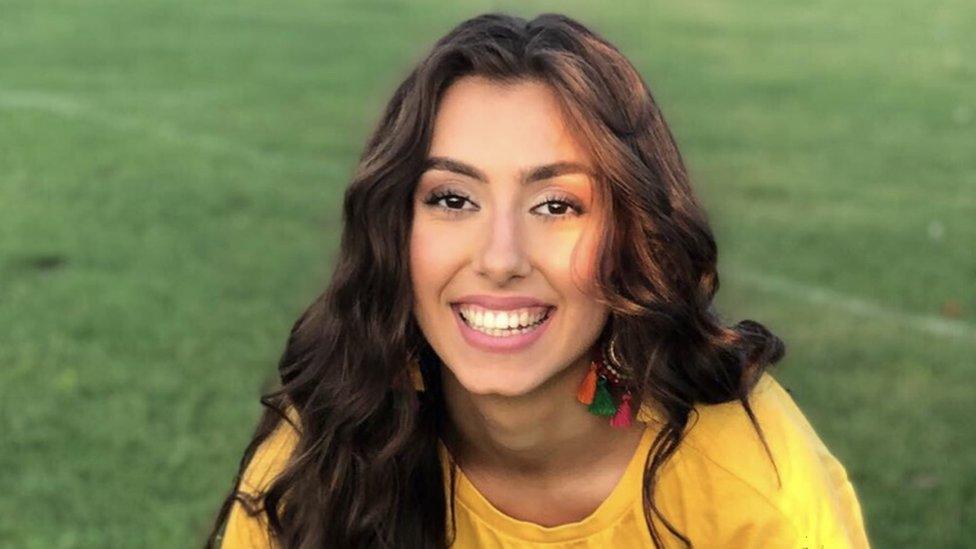
Esther, 17, fled Syria in 2014 and says she initially found it hard to make friends
More than 17,000 refugees who fled the Syrian war have settled in Britain over the past five years.
Of those, many have had to work hard in overcoming cultural changes as they try to forge a new life for themselves.
Another 3,000 refugees are expected to arrive by the end of 2020 under the government's Vulnerable Persons Resettlement Scheme (VPRS).
Three displaced refugees tell the BBC of their experiences of integrating and nestling into British society.

'Eat fish on Fridays'
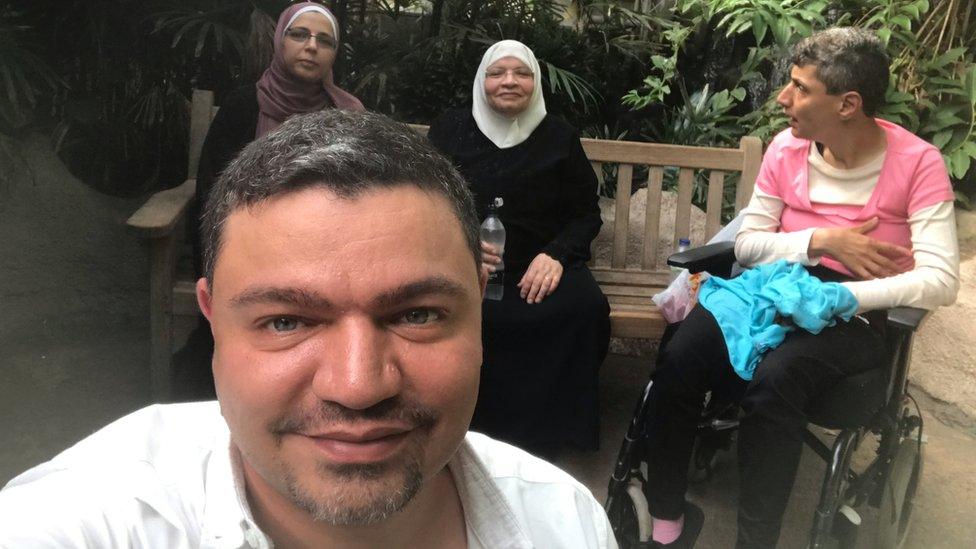
Ghani fled two wars in Kuwait and Syria before resettling in Huddersfield
Fleeing a war-torn country once is bad enough, but to experience it a second time was even more traumatic for 37-year-old Ghani.
The Kuwaiti-born barber escaped conflict in his native country, with his family, and had to start over again in Syria.
But resettling was a struggle, he said, having encountered a spell of homelessness. The stress resulted in his father dying from a heart attack.
Then years later, in 2011, it happened all over again.
"We worked hard to build a new life in Syria. It was a difficult and hard situation. I had my own barbershop, then war started again in Syria.
"It was fire everywhere."
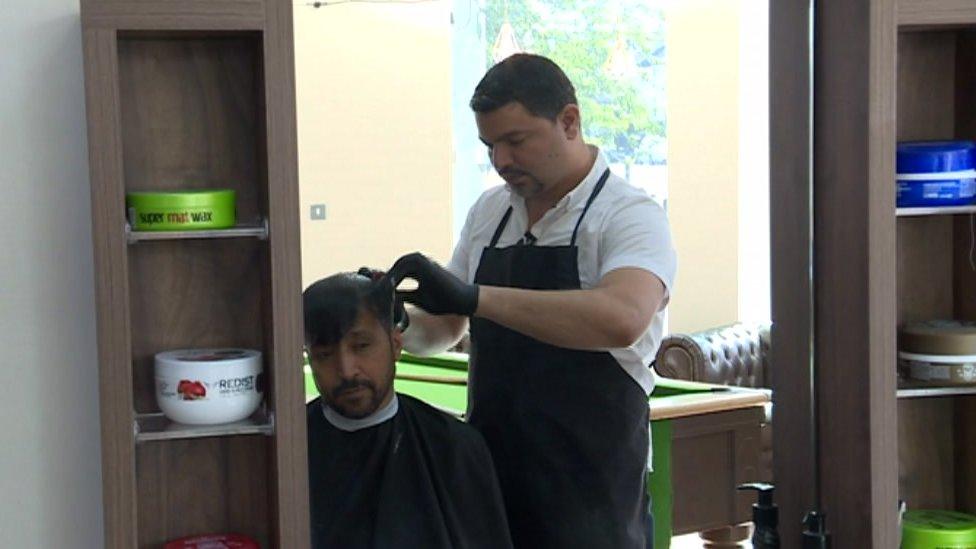
The 37-year-old professional barber has dreams of opening a "barber academy"
Ghani fled to Jordan with his mum and three sisters, one of whom has severe learning disabilities, and lived there for three years before uprooting to Huddersfield in 2016.
"I feel 19 July 2016 was like my new birthday. I had a new life.
"I don't care what people say about Huddersfield, it's safe and I feel at home."
Ghani, who has dreams of opening a "barber academy", said the community felt "like a big family" and had helped him to learn English, get a job and integrate into society.
"It was a culture shock. We knew nothing, everything was different - language, how we talk, body language.
"But people in Huddersfield are really lovely and friendly. They helped me a lot to learn about British culture, like eating fish every Friday."
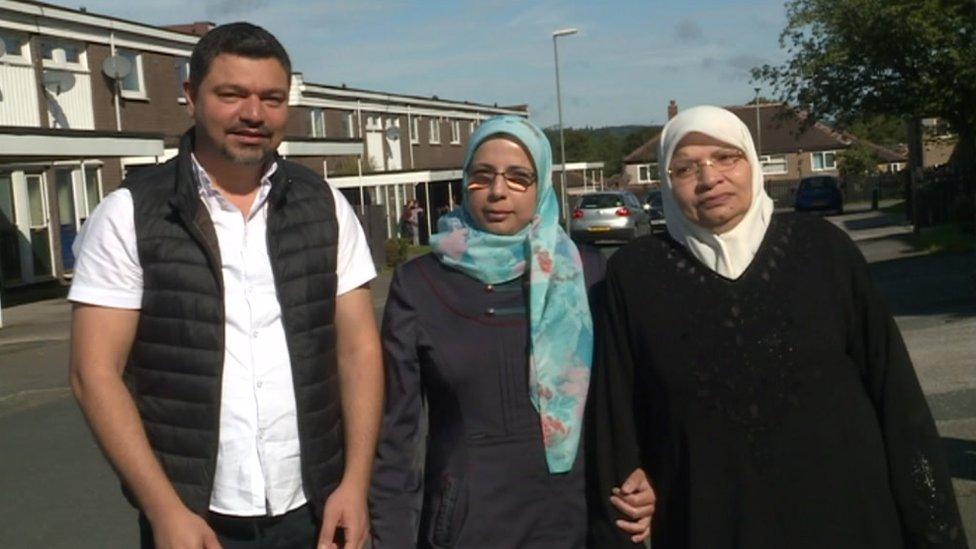
"The community in Huddersfield has taught me British culture"
Despite remaining "open-minded and positive" about a future in teaching, Ghani said he still experienced "flashbacks of the war from when I was in Kuwait".
"I have that little boy inside me who's shouting and crying because we lost everything.
"I see blood everywhere."

Bully 'called me a terrorist'
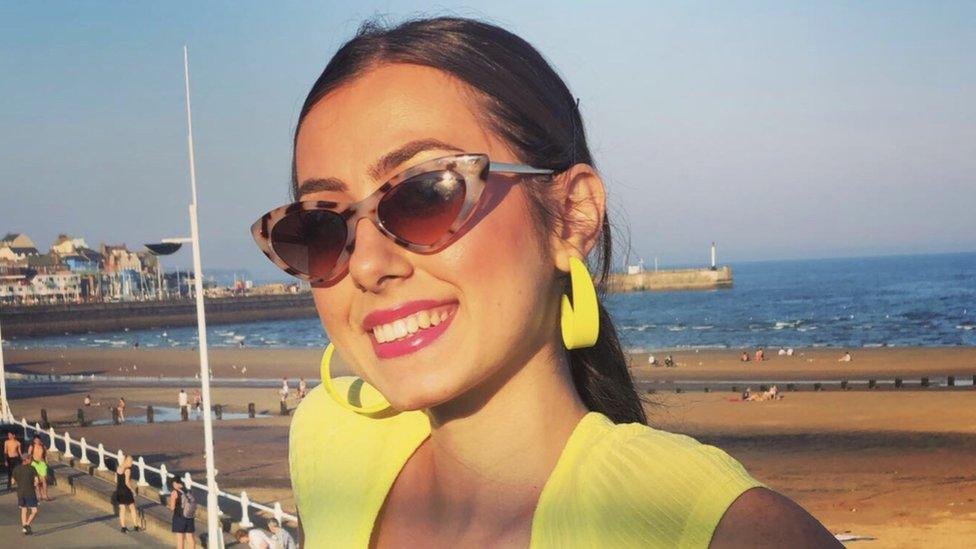
The Hull College student says she has aspirations of being a fashion designer
Unlike Ghani, 17-year-old Esther had a rather more sombre experience of integrating into British culture.
The teenager fled Syria in September 2014 and moved to Lebanon with her family.
Being displaced in a neighbouring country was "very challenging and very hard", she said.
"We didn't see a future at all in Syria and Lebanon.
"In Lebanon it was worse because we weren't treated nicely. We experienced racism because there were a lot of refugees, people weren't nice."
A year later, Esther made the long journey to Hull with her mother, father and two sisters. She said adjusting to UK life was a daunting experience.
"Hull is a beautiful place. I'm very happy here but of course it was a little bit challenging.
"Making friends was hard at the beginning because you can't communicate with the students."
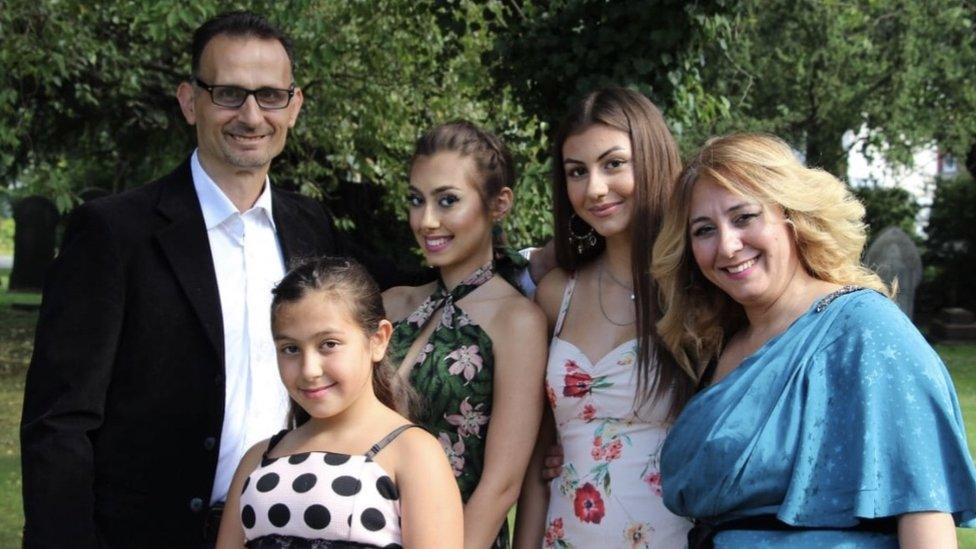
The UK government announced in 2015 that it would take up to 20,000 refugees, like Esther and her family, fleeing the Syrian war, by the end of 2020
She said "some people didn't accept you" at first and that she was bullied at secondary school, making resettlement tough.
"One of the students called me a terrorist so I was very sad and wasn't happy."
The student has aspirations of being a fashion designer and is starting her final year of a two-year course at Hull College.
"Now I'm enjoying life.
"I always make an effort to fit in."

"I felt that we were going to die"

'We're not trouble'
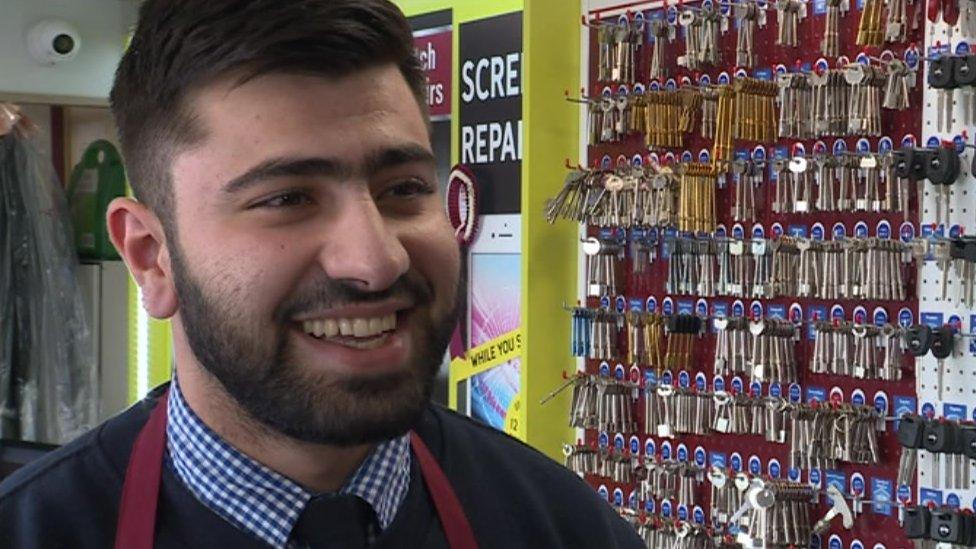
Anas has ambitions of moving up the ranks within Timpson to be an "area manager"
Twenty-three-year-old Anas made the nerve-wracking journey from his war-torn hometown of Aleppo, in Syria, to Bradford five years ago with his family.
The Syrian national said he made the "last airplane" out of Aleppo to Egypt when he was 16 and came to the UK two years later.
But he said fleeing involved making sacrifices, including giving up his education.
"I wished there was no war because if there wasn't a war I could be like a good manager in Syria now.
"Unfortunately, I had to leave my studying and go to Egypt and support my family there."
You may also be interested in:
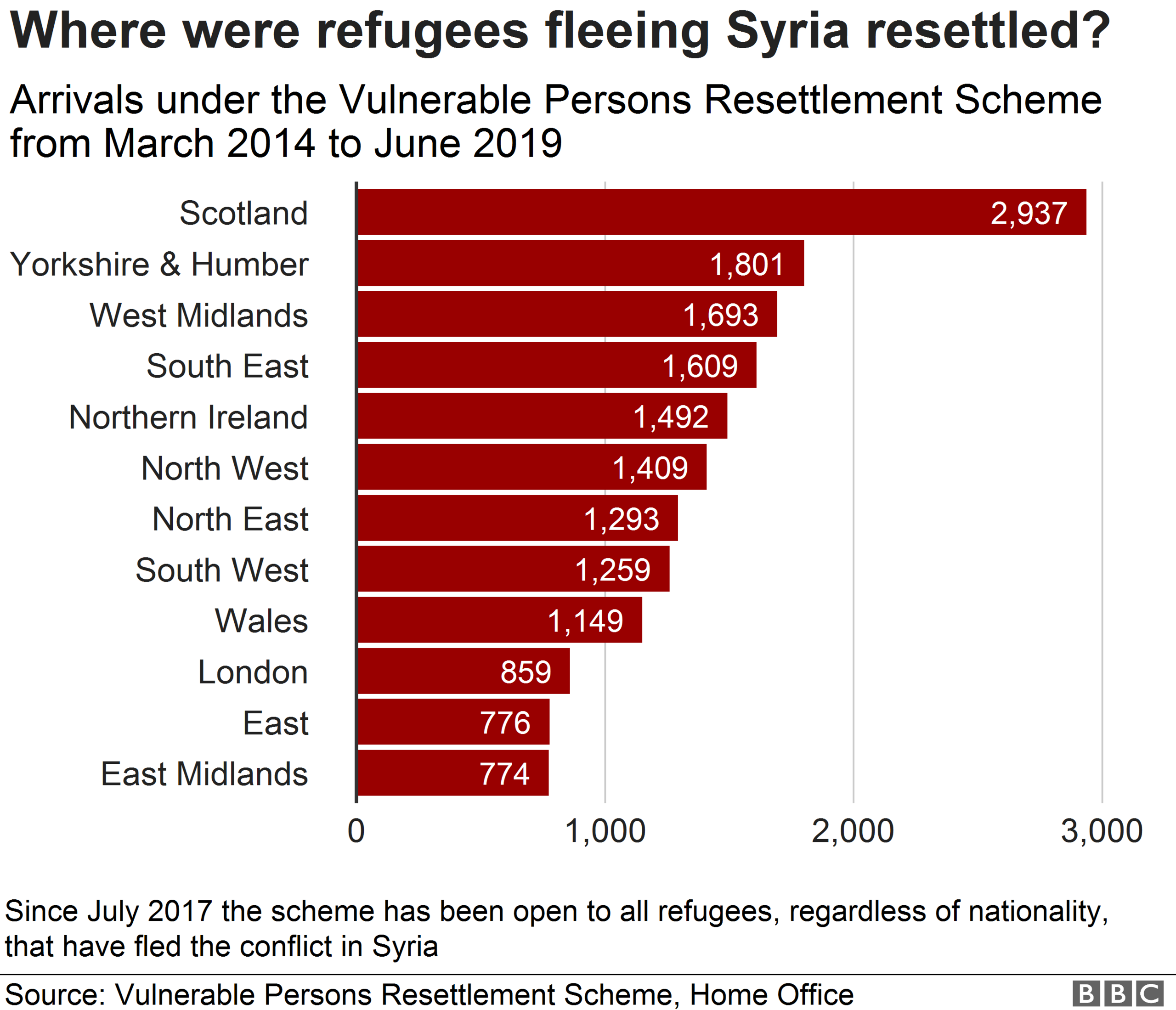
After completing English language, IT and management courses, he is now working for High Street repair company Timpson.
"When I [look back at] myself I'm like a baby, I couldn't even talk one word of English. [It was] really hard.
"Since I stepped foot in this country I've been working full time and I've been through so many jobs.
"I've now got a mortgage, a house, a car.
"We're not trouble for people."
While he has ambitions of being an area manager, Anas believes the key to adjusting and integrating into a new environment is "a lot of hard work and practice".
"Life is not easy. You need to try. If you're not trying, you're going to get nothing from life."

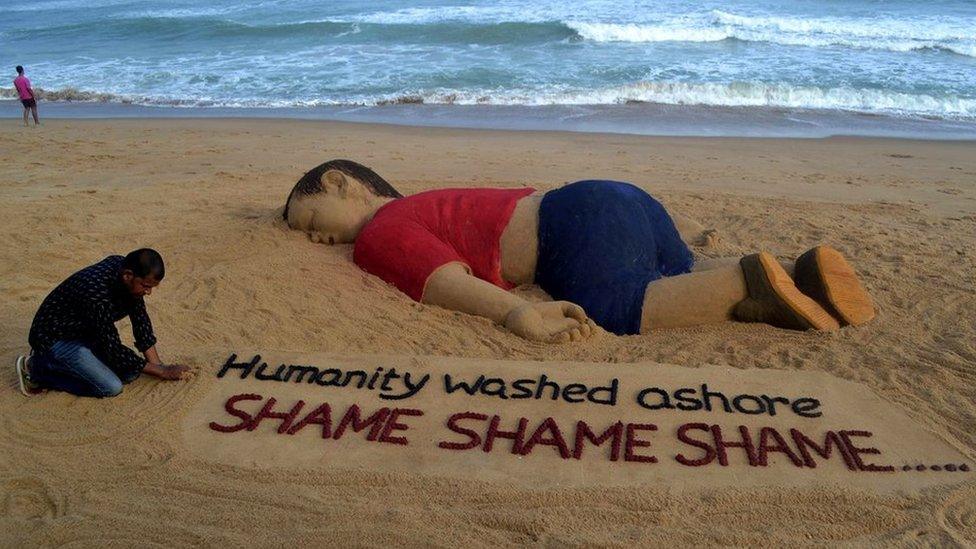
Indian artist Sudarsan Pattnaik created a sand sculpture depicting drowned Syrian boy Alan Kurdi
In September 2015, photos were released of three-year-old Alan Kurdi's body washed up on a Turkish tourist beach. The toddler drowned with his mother and brother while trying to cross from Turkey to Greece by boat.
Days later, the distressing images sparked a commitment by the government to take up to 20,000 refugees in the UK by the end of next year, under its VPRS programme.
Latest figures from the Home Office released last month, external, show Scotland took in the most with 2,937 refugees resettling there, while the Yorkshire and the Humber region have 1,801 - the largest in England.
- Published24 April 2018
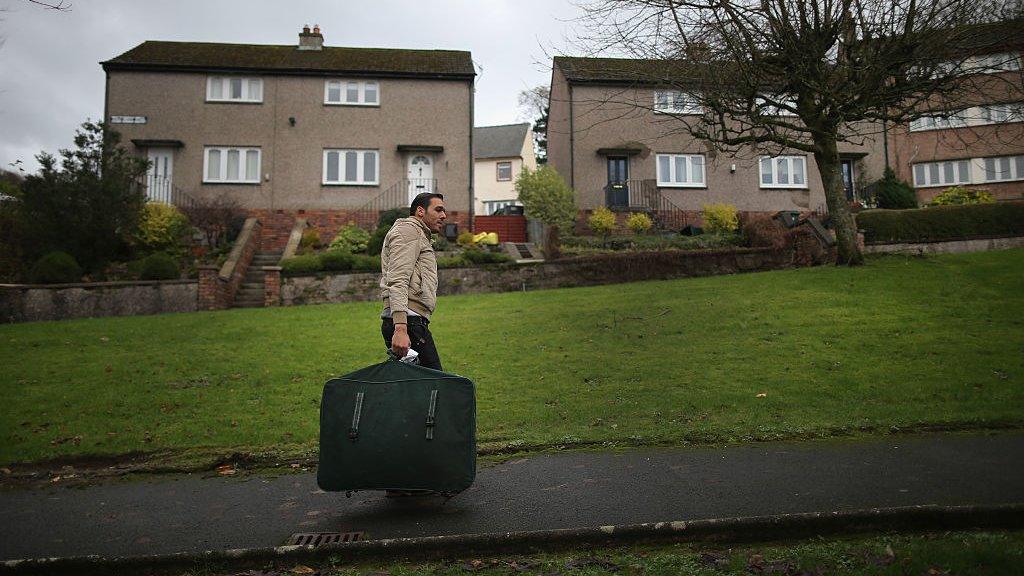
- Published6 April 2018
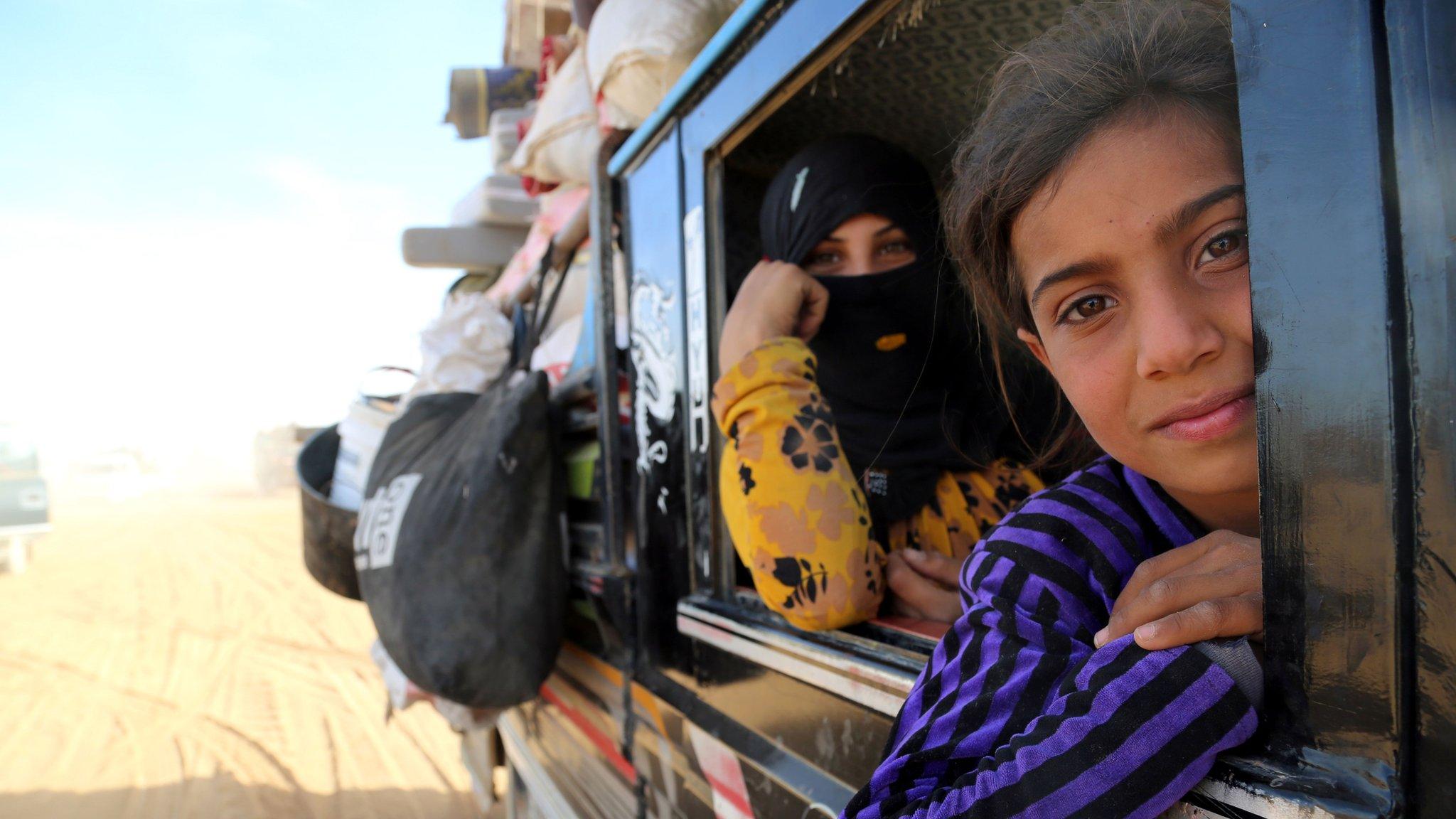
- Published6 July 2019
